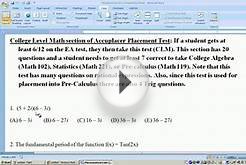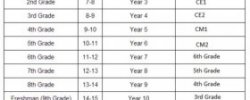 Ultimately, course selection should be a student's choice and responsibility, one counselor says.
Ultimately, course selection should be a student's choice and responsibility, one counselor says.
And teens will often have several types of classes to choose from, including college-level classes such as Advanced Placement, International Baccalaureate and dual enrollment courses.
Parents, along with counselors and teachers, can and should help with the course selection process, says Kate Van Pernis, a school counselor at Southwest High School in Minneapolis. But students need to be the project managers and ultimate decision makers, she says.
But parents with children who have never taken college-level classes before may be wondering if these classes would be a good fit for their teen. The following answers to common questions may help parents steer their child in the right direction.
1. How much more rigorous are college-level classes compared with honors and regular courses? College-level classes involve a lot more independent learning and study time outside of class, just like in college, says Meredith Sherrill, a school counselor at Myers Park High School in Charlotte, North Carolina.
Van Pernis says counselors at her school encourage students to sign up for the most challenging classes they think they are going to be successful in.
And while she thinks students should challenge themselves with their course selection, students should consider balance and not bite off more than they can chew – it's not great to be in all rigorous classes, but getting C's and D's.
But parents shouldn't underestimate their average student who wants to take a college-level class, says Sherrill. "Sometimes an average student, when they are passionate about something and they are willing to spend the extra time, they can surprise us. So we don't try to limit them."
2. How many college-level classes should a teen take each year? That depends on the student, says Sherrill.
"For some students, one AP is enough of a challenge, whereas another, seven AP classes is the appropriate level of challenge, " she says.
Students should strive for balance in their schedule and consider their intellectual capabilities and after-school activities when selecting courses.
And parents shouldn't let what other parents are doing or saying influence how many college-level courses they encourage their child to take, she says.
3. Should my child take AP, IB or dual enrollment classes? One is not better than another so which kind a student should take depends on the student, says Sherrill.
Students should work with counselors to determine which one is the best fit if they have multiple options at their school, she says.
"All three enable students to potentially earn college credit and exemplify to college admissions offices that they (students) are pushing themselves to take advanced course work, " she wrote in an email.
4. Are students guaranteed college credit if they do well in these courses? There is no guarantee a student will earn college credit for their work in these courses.
To get college credit for AP and IB classes, students take an exam at the end of each course, and their score typically determines whether they are able to earn college credit – and some colleges don't award credit for any AP and IB classes.
Students should take these kinds of classes because of the rigor they provide, not because of the potential to save money and earn college credit, Sherrill says.
High schoolers taking a course through a postsecondary institution will actually start a college transcript, but there's no guarantee that another college will accept that credit as well, says Van Pernis.








